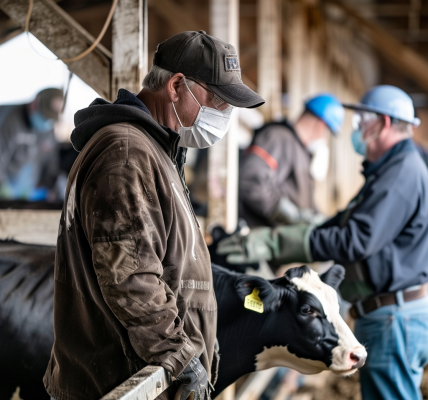As the seasons change and temperatures drop, many individuals find themselves facing the inevitable onslaught of cold and flu viruses. With the arrival of cold and flu season, understanding how our immune system operates becomes crucial for maintaining health and well-being.
Both colds and influenza are viral infections that primarily affect the respiratory system. During this time of year, it is common for most people to encounter at least one viral infection. The question arises: how does our immune system defend us against these pathogens?
Dr. Michaela Gack, the Scientific Director of the Cleveland Clinic Florida Research and Innovation Center, explains that after an initial virus infection, our immune system works diligently to shield us from subsequent infections. “Whenever we have a second infection, these antibodies can be produced and thereby protect us, but there are some limitations,” Dr. Gack noted. This protective mechanism is most effective when the subsequent virus is the same or closely related to the one that initially infected the individual.
Dr. Gack’s research delves into the complexities of the immune system, highlighting that some viruses exhibit minimal mutation over time. This stability allows for long-term immunity following an initial infection or vaccination. A prime example is chickenpox; once contracted or vaccinated against, the immune system retains the memory of the virus for decades, effectively preventing reinfection.
Conversely, there are viruses that mutate at a rapid pace, such as the influenza virus and COVID-19. These mutations can hinder the immune system’s ability to recognize and combat the virus effectively. This is why annual vaccinations for both influenza and COVID-19 are strongly recommended, as they help prime the immune system to recognize and respond to the latest strains of these viruses.
During this cold and flu season, it’s essential to stay informed about preventive measures. Vaccination remains one of the most effective strategies to protect oneself. For individuals who may be uninsured or seeking information on how to access free flu shots, various community health initiatives and clinics offer resources to ensure that everyone has the opportunity to get vaccinated.
In addition to vaccinations, maintaining a healthy lifestyle is crucial in bolstering the immune system. This includes a balanced diet rich in fruits and vegetables, regular physical activity, adequate sleep, and proper hydration. These elements contribute to a robust immune response, enabling the body to fend off infections more effectively.
As we navigate through the cold and flu season, being proactive about our health can make a significant difference. By understanding how our immune system functions and the importance of vaccinations, individuals can take meaningful steps to protect themselves and their communities.
Stay informed and stay healthy this season by keeping abreast of local health resources and recommendations. Awareness and preparedness are key in combating the challenges posed by seasonal viruses.
In related news, community health organizations are ramping up efforts to educate the public about the importance of vaccinations and healthy practices during this time. Programs aimed at promoting awareness and accessibility to health services are being implemented across various regions.
As the community works together to face the realities of cold and flu season, support from local health initiatives can play a vital role in ensuring that everyone has access to the necessary resources to stay healthy.
With the cold and flu season upon us, it is more important than ever to prioritize our health and the health of those around us. By understanding the mechanisms of our immune system and taking preventive measures, we can navigate this season with greater confidence.





